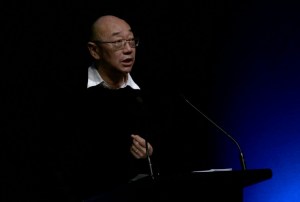
Television dramas can change people’s perceptions and can subvert prejudice by opening up new worlds and experiences to audiences.
Speaking at the Future Vision summit this week, showrunner / director / producer Tony Ayres (Clickbait, The Slap, Fires) said writers had a unique ability to shift perceptions.
“The greatest tool at the storyteller’s disposal is Point of View,” he said.
“That, is whose eyes are we telling the story through?
“By suturing an audience to a character’s point of view we temporarily live in the skin of another human being. We experience the world as they experience it. We feel their heart beating in our chests.
“So, if we tell stories of people who are not usually seen on our screens, which is something that I seem to be drawn to recurringly, and if we tell these stories well enough, we have a chance to subvert people’s prejudices and expectations of these marginal groups. And the perfect example of that is the beautiful House of Gods.
“Another way of phrasing this: storytelling is a form of norm engineering. Norm engineering is the idea that you can change people’s behaviour by changing what people accept as normal.
“People then act differently and not because their individual beliefs are suddenly and radically transformed, but because they believe that a bigger, more diverse world is the norm. And because we are all social creatures, our behaviours adjust accordingly to this wider realm of possibility.”
Ayres cited the recent outcome of the vote for same sex marriage, convinced that television programmes had an influence on a wider level of acceptance.
“For me, the best example of norm engineering was the recent change in attitudes to gay marriage in Australia. At a certain moment in history, our television screens first trickled with, and then became flooded by, lesbian, gay and transgender characters who were living perfectly ordinary lives like Modern Family, or Will & Grace, or extraordinary lives like the couple in The Last of Us,” said Ayres.
“I believe that attitudes towards homosexuality and sexual diversity in Australia became increasingly tolerant, in part because television open the ‘Overton window’ of what was normal, in terms of both sexuality and family.
“We have extraordinary examples of this, like Please Like Me, The Newsreader and Wentworth. It’s not a literal connection, it’s a poetic connection as well as Point of View.
“The other great weapon in the storyteller’s arsenal is Truth,” he continued.
“I mean, we all sit around in Writers’ Rooms, we shake our heads, we think, ‘Nah, I don’t believe that. That isn’t true. We can’t do that.’ Or we say, ‘Yes I recognise this. It feels true and it’s really cool.’
“And we then construct sequences of events, which assume a meaning for an audience.
“But only if they believe it.”
links to content on ABC
TV Tonight





